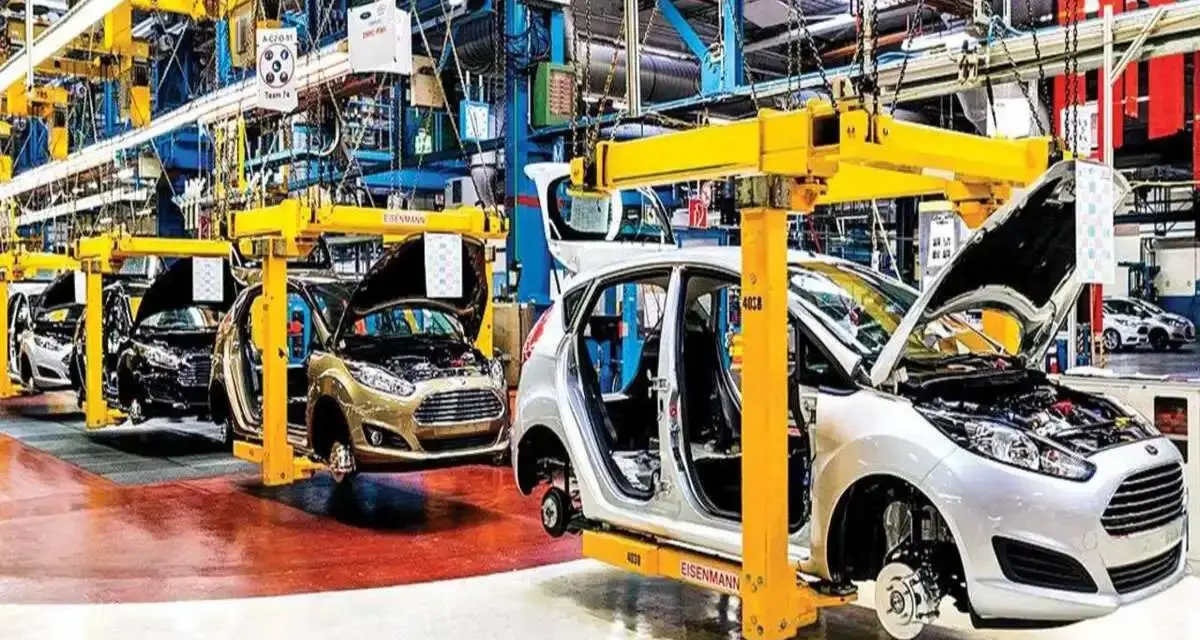

As the Indian automobile industry grapples with sluggish demand and mounting challenges, automakers are resorting to aggressive price cuts across the board. This comes amidst an all-time high inventory of 62-67 days in the passenger vehicle (PV) sector, raising questions about whether the industry has hit a peak in its growth optimism.
Despite an improvement in product availability and substantial discounts, the market sentiment remains subdued. The extreme heat has resulted in a 15% drop in showroom walk-ins, exacerbating the already high inventory levels. As of now, the industry’s inventory is valued at approximately ₹60,000 crore, lying unsold with dealers.
Manish Raj Singhania, President of the Federation of Automobile Dealers Association (FADA), highlighted the gravity of the situation: “The total unsold inventory in the market would be around 600,000-650,000 units, and their average ticket size is ₹9.5 lakh. The last two months saw stock increase by 77,000 units.”
In June, total wholesale dispatches grew by 4% to reach 341,000 units. However, the actual vehicle registrations during the same month were only 281,600 units, showcasing a significant gap between market demand and the vehicles supplied by manufacturers.
The availability of credit is another critical factor influencing the current market dynamics. Banks have become increasingly hesitant to take risks, opting to lend only to quality customers with good CIBIL scores. Previously, easy access to credit had fueled demand for many consumer durable goods and services. However, with high interest rates and stringent norms now in place, demand is expected to take a hit, further impacting vehicle sales.
Retail car sales in India registered a year-on-year (Y-o-Y) drop of 6.7% in June 2024, the most significant dip in two and a half years. To counteract this decline, car manufacturers have announced a series of discounts, even on newly launched models, including SUVs, as they strive to clear unsold inventories.
Automobile majors Tata Motors and Mahindra & Mahindra (M&M) have significantly reduced the prices of their popular vehicles to stimulate demand. M&M has slashed prices by up to ₹2.05 lakh, while Tata Motors has reduced prices by up to ₹70,000 on select models, along with benefits of up to ₹1.4 lakh on popular SUV variants.
M&M has introduced special ex-showroom pricing for all AX7 variants of their XUV700 SUV, effective from July 10, 2024, for four months. The AX7 range now starts at ₹19.49 lakh, down from the earlier price of ₹21.54 lakh.
Tata Motors has also reduced the prices of its premium SUVs, Harrier and Safari, which now start at ₹14.99 lakh and ₹15.49 lakh, respectively. Additionally, Tata Motors is offering benefits of up to ₹1.4 lakh on popular SUV variants and discounts on EV variants like the Nexon EV and Punch EV, ranging from ₹30,000 to ₹1.5 lakh.
Interestingly, these announcements followed a recent move by the Uttar Pradesh government to waive registration fees on strong hybrid cars, effectively reducing their on-road prices by up to ₹4 lakh.
The price war among automakers indicates a significant slump in demand, which could result in lower earnings in the future. It is important to note that the NIFTY auto index (+63%) has been one of the top sectoral gainers in the last year, driven by high optimism around growth and the launch of new EVs.
| Company | Current Price (In ₹) | Market Cap (In ₹ crores) | P/E | 1 Year Return | OPM % | ROSE |
|---|---|---|---|---|---|---|
| Maruti Suzuki | 12,927.50 | 4,06,443.91 | 30.18 | 29.57% | 13.06 | 23.68% |
| M&M | 2,722.10 | 3,38,501.03 | 30.03 | 86.40% | 17.90 | 13.58% |
| Tata Motors | 1,006.65 | 3,69,514.03 | 11.56 | 61.49% | 13.60 | 20.11% |
While shares of automakers have seen a sharp rally in the last year amid rising optimism around growth and the launch of new vehicles, the current scenario of sluggish sales, significant price cuts, and high inventory levels paints a gloomy picture. The industry must navigate these challenges carefully to maintain its growth trajectory and meet market expectations.
Also Read: